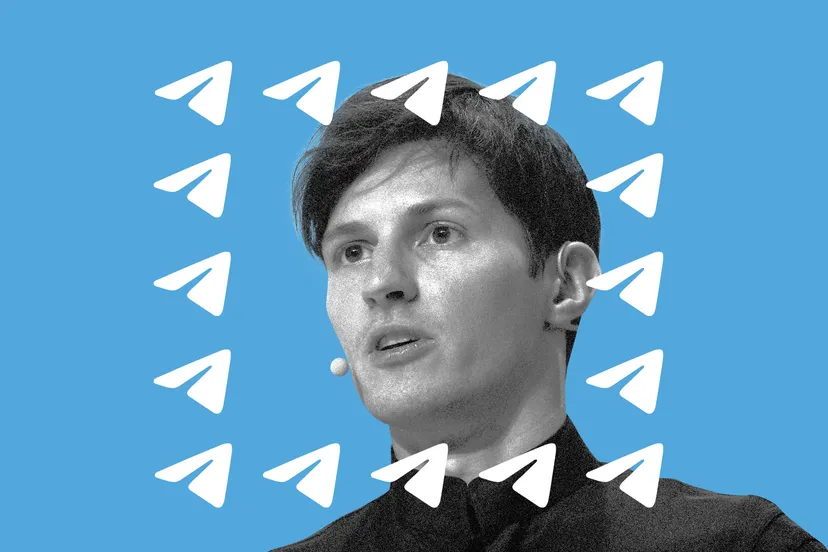In a significant moment for one of the world’s most popular messaging platforms, Telegram CEO Pavel Durov has made his first public comments since being charged by authorities, defending himself and his company against allegations. This comes after growing scrutiny and legal challenges, marking a pivotal point for Telegram, which has long stood as a bastion for encrypted communication and user privacy.
This article delves into Durov’s defense, the charges brought against him, Telegram’s role in global communication, and what this could mean for the future of both the platform and its enigmatic leader.
A Timeline of the Events Leading to the Charges
In recent years, Telegram has faced increasing pressure from governments and regulatory bodies around the world, largely due to the platform’s staunch commitment to user privacy and encryption. This commitment has made it popular among activists, privacy advocates, and everyday users, but it has also attracted unwanted attention from those concerned with criminal activity and terrorism.
The charges against Durov are tied to these concerns, as authorities allege that Telegram has failed to adequately address illegal activities occurring on its platform, such as drug trafficking, extremist communication, and the spread of misinformation.
Telegram’s refusal to provide backdoor access to governments or to censor certain content has made it a target for legal action in several countries. Authorities argue that platforms like Telegram must comply with laws that allow governments to monitor potential criminal activity. However, Durov has been outspoken about his belief that user privacy must come first, even in the face of such legal challenges.
Durov’s Public Defense: Standing by Encryption and Privacy
In his first public comments since being charged, Durov strongly defended his and his company’s position, making clear that he sees the charges as an attack on privacy and freedom of communication. Speaking from an undisclosed location, Durov emphasized that Telegram was built on the principle of protecting user data and ensuring that private communications remain private.
He stated, “We have always believed that privacy is a fundamental human right. The moment we allow governments to infringe on that right, we lose the core of what makes Telegram unique and valuable.”
Durov’s comments come as no surprise to those familiar with his philosophy. Since founding Telegram in 2013, he has positioned the platform as a defender of freedom, often in opposition to government surveillance and censorship. Telegram’s end-to-end encryption has been a key feature in this, preventing anyone, including Telegram itself, from accessing the content of users’ messages.
However, this same feature has led to accusations that Telegram is being used by criminals and terrorists to organize and communicate in secret, away from the eyes of law enforcement.
The Charges: What Exactly Is Durov Facing?
The specific charges against Durov vary by country, but they generally fall into two main categories:
- Failure to Comply with Government Requests for Data: Several governments have attempted to force Telegram to hand over user data in order to aid in criminal investigations. Durov and his team have consistently refused, citing their commitment to user privacy. This refusal has led to legal challenges in countries like Russia, Germany, and Brazil.
- Facilitating Criminal Activity: Some authorities have argued that by not cooperating with law enforcement and allowing for anonymous communication, Telegram has become a haven for illegal activities, including terrorism, drug trafficking, and the spread of extremist propaganda. In some cases, governments have claimed that Telegram is directly responsible for these activities by failing to moderate content.
Durov’s defense against these charges is that Telegram, like any communication tool, can be misused by bad actors, but that this is not the fault of the platform itself. He has likened it to blaming a phone company for criminal conversations that occur over the phone or a postal service for delivering illicit materials.
The Impact on Telegram’s Global Reputation
Telegram has a user base of over 700 million people worldwide and is particularly popular in countries where government censorship is prevalent. For many, it has become a symbol of resistance against authoritarian regimes and a platform where free speech can thrive without fear of retaliation.
However, the charges and the increasing scrutiny from governments have raised questions about Telegram’s future. Some countries, like Russia, have even attempted to ban Telegram in the past, only to reverse the decision due to public outcry and the platform’s continued popularity.
Despite this, Telegram’s no-compromise stance on encryption and refusal to cooperate with authorities has led to it being blocked in certain regions. The current legal challenges could further complicate Telegram’s operations in several countries, potentially limiting its accessibility and forcing it to reconsider its approach.
Telegram’s Role in Political Movements
Telegram has played a crucial role in numerous political movements across the globe. During protests in countries like Iran, Hong Kong, Belarus, and Russia, Telegram was used by activists to organize demonstrations, spread information, and evade government censorship. Its encryption features made it a safe haven for communication that could not be easily monitored by authorities.
Durov has often highlighted these instances as proof of Telegram’s importance in protecting free speech. He noted that if Telegram were to comply with government data requests or weaken its encryption, millions of activists and journalists would be at risk, especially in authoritarian countries.
However, critics argue that while Telegram may help activists, it also helps terrorists and criminals. Extremist groups such as ISIS have reportedly used Telegram to communicate and coordinate attacks, which has led to calls for tighter regulation of the platform.
The Broader Debate on Privacy vs. Security
The legal challenges facing Durov and Telegram are part of a larger global debate about the balance between privacy and security. Governments argue that platforms like Telegram must be regulated to prevent illegal activity and ensure national security. Without access to communications, law enforcement agencies say they are left blind to potential threats.
On the other hand, privacy advocates, including Durov, argue that once a platform starts handing over user data to governments, it opens the door to mass surveillance and the erosion of civil liberties. They point out that authoritarian governments, in particular, could abuse access to such data to suppress dissent, persecute political opponents, or silence journalists.
This debate is not unique to Telegram. Other tech companies, such as Apple, Facebook, and WhatsApp, have faced similar pressures from governments to weaken encryption or provide access to private communications. In every case, the companies have resisted, often finding themselves in the crosshairs of legal battles that test the limits of privacy rights.
What’s Next for Telegram and Pavel Durov?
As of now, it’s unclear how the legal challenges will unfold. Telegram has already been fined in several countries, and the platform faces the possibility of being blocked or restricted in others. However, Durov’s defiance suggests that Telegram is unlikely to change its stance on privacy anytime soon.
In his public comments, Durov hinted that he is prepared for a long legal battle, saying, “We will continue to fight for what we believe in. Privacy is not negotiable.”
The future of Telegram will likely depend on how these legal challenges are resolved and whether Durov and his team can find a balance between maintaining privacy and complying with government regulations. Some experts believe that Telegram may need to implement stricter content moderation to avoid further legal complications, while others argue that doing so would betray the platform’s core principles.
Public Support and Criticism
Durov’s stance has earned him both ardent supporters and vocal critics. Privacy advocates, digital rights organizations, and many Telegram users have praised him for his unwavering commitment to user privacy. They view Telegram as a necessary counterbalance to the increasing surveillance powers of governments and tech giants alike.
On the other hand, critics argue that Telegram’s lack of cooperation with authorities makes it a haven for illegal activity. Some have called for greater regulation of encrypted messaging platforms, arguing that public safety must take precedence over privacy concerns.
Conclusion: A Defining Moment for Telegram
The legal battles facing Pavel Durov and Telegram are not just about one company—they are emblematic of the broader fight over digital privacy in an age of increasing surveillance and government control. Durov’s public defense marks a defining moment for Telegram and raises important questions about the future of encrypted communication.
As governments continue to push for more oversight of digital platforms, the outcome of these challenges could have far-reaching implications for free speech, privacy rights, and the future of the internet. For now, Durov and Telegram remain steadfast in their belief that privacy is a fundamental right worth defending, no matter the cost.





